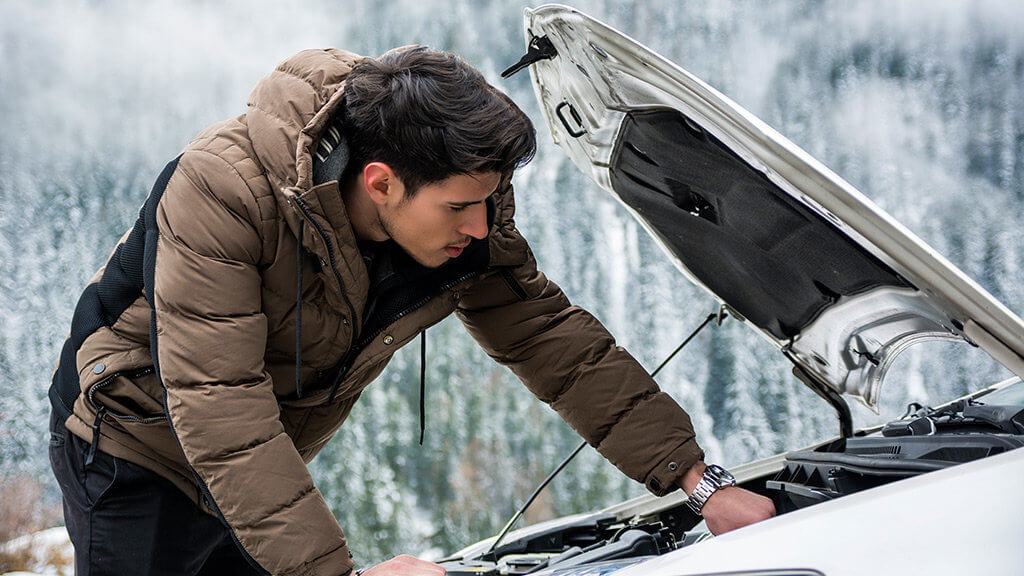Old Man Winter is on his way. Along with holiday cheer and the promise of a new year, he usually brings unwelcome weather. Depending on where you winter, you could be in for snow, sleet, rain, fog, frost or dropping temperatures. Besides chilling your toes and nose, winter weather can wreak havoc on your home, yard and car. Icy, stormy and foggy conditions also create dangerous driving conditions. Don’t let winter bring you down. Be winter-wise and winterize your house, auto and garden with these easy tips.
Winter Home Maintenance Check List
When comes to home maintenance, an ounce of prevention can save you a ton of expensive cure. Winterizing an older home is critical, but even a brand new Taylor Morrison home can benefit from some winter TLC. Use this handy home winterizing check-list.
- Keep your roof clear of snow build-up. The constant thawing and refreezing can compromise the integrity of your roof.
- Clear the gutters and downspouts. Consider installing leaf guards to prevent debris build-up in gutters and downspout extensions to direct water away from your home’s foundation.
- Check the caulking on all exterior windows and repair or replace. Do the same with the weather stripping on doors.
- If freezing is a constant threat where you live insulate exterior and exposed pipes. Drain your air conditioner pipes, too, and turn off the water valve.
- If you’ll be away from home for more than a few hours, set the thermostat to 55. It’s cheaper than frozen plumbing and potential flooding. Know where your main water shut-off valve is before you need it.
- Mold can be a big problem in winter, especially in places with high humidity. Maintain an indoor humidity level between 20 and 40% in the winter. You can also put dehumidifiers or fans in areas at risk of mold growth. Dehumidifying crystals or even a low-watt light bulb in closets can help keep mold at bay.
Winter Home Safety Tips
- Have your heating system checked by a licensed HVAC contractor or check to see if your utility company will do this for free or a nominal fee.
- Change or clean heater filters frequently during months of heavy use. All that dust can be a health hazard.
- Have your chimney professionally cleaned and checked for any damage. Always use a fire screen and andiron.
- Don’t overload your electrical circuits. Use quality power strips.
- Candles are pretty, but they’re also a major fire hazard. Never leave them unattended. Better yet, use battery-powered flameless candles.
- Change the batteries of your smoke and carbon dioxide detectors.
- Have a plan to see you through power outages caused by winter storms. The should include canned food (don’t forget pet food), bottled water, medical supplies and first aid kit, a fresh battery supply for cell phone, flash lights and radio. You’ll find more good tips to prepare for and survive winter home emergencies here.
Winter Yard and Garden Care
Unless you live in a tropical paradise winter is not a gardener’s best pal. Properly winterizing your yard and garden can help expensive landscapes survive frost, freezing temperatures and snow. But even if you live in areas that rarely ever freeze, a little attention to your winter yard work can mean an easier time come spring.
- Tidy up. Remove anything that’s dead or dying. Pull out invasive weeds while you’re at it and dispose of in the trash. Not only will your garden look nicer, it will discourage pests and disease.
- Before the storms come, consider trimming any branches that could break windows or smash holes in your roof.
- Dig up any bulbs that may not make it through a hard freeze. If you’re not sure, ask a local nursery for advice on which to dig up and how to store them.
- Add compost to beds and planters.
- Mulch away to prevent constant freeze/thaw cycles from uprooting new plants. Add more mulch throughout the winter months if winds blow it away.
- Deep soak evergreens before the first thaw to prevent winter burn. Broadleaf evergreens like holly and boxwood, especially those with a south/southwest exposure to afternoon sun may need to be watered periodically throughout winter.
- Protect the thin bark of newly planted trees with special tree wrap available from your nursery.
- Use breathable agricultural fabric or burlap, not plastic, to protect shrubs from freezes. Remove it when it warms up to prevent “cooking” your plants.
- Insulate pots and planters that could crack from freezing, or if possible move them indoors.
- If you live in a warmer climate, Sunset Magazine has a basic month-by-month garden guide to keep your yard healthy all year long.
- Don’t waste water. Turn off the automatic irrigation system during the rainy months.
Get Your Car Ready for Winter
Along with scheduled service to check hoses, belts, and fluid levels, take these preventive winter car maintenance tips and you won’t be the guy or gal stranded on the side of the road in a snow storm.
- Have your battery checked to make sure connections are tight and corrosion-free. If it’s more than three years old, think about replacing it or investing in a portable charger.
- Rotate your tires, get the wheels aligned and replace tires that are showing uneven or excessive wear. Make sure you spare tire is in good repair. Consult your owner’s manual for the proper tire pressure.
- Get your brakes checked.
- Replace worn wiper blades front and back and fill up the washer reservoirs.
- Keep your headlamps clean and properly aligned.
- Keep your gas tank filled up. Gas pumps won’t work if the power goes out.
Winter Road Safety Tips
- Before you turn on the ignition, check under the hood. Small critters sometimes crawl into engine wells to stay warm.
- If you don’t have snow tires, carry a set of chains.
- Carbon monoxide kills. Never side inside a closed garage with the engine idling. Even outdoors, it’s smart idea to crack the window a bit.
- Use your low beams in low-visibility driving conditions.
- Before you take off for a long trip, tell someone where you’re going and what time you expect to get there. Call and let them know you arrived safely.
- Carry an emergency kit with essential supplies. Theses should include blankets, warm hats, gloves and socks, water, non-perishable food, manual can opener, flares, flashlight and an emergency hand-cranked radio that can double as a cell phone charger. Rock salt or kitty litter can provide traction if you get stuck.
Be Prepared
You never know what winter’s going to throw at you. Maybe just snowballs. But just in case, here’s some useful advice to help you prepare a plan for any emergency at home or on the road.
No matter where you spend the winter, stay warm, safe and healthy!









